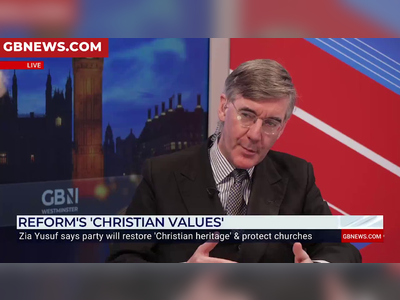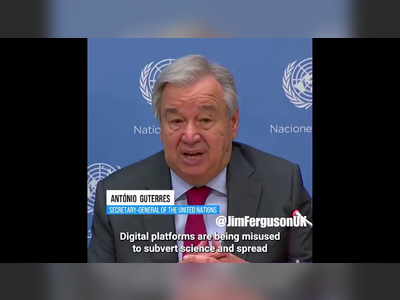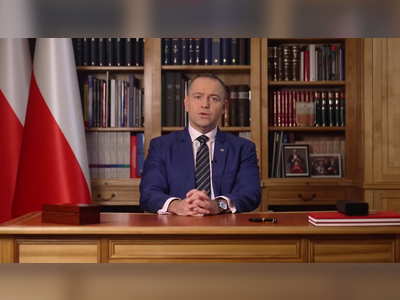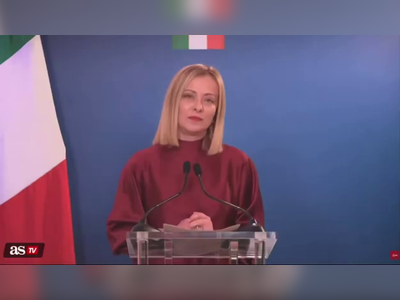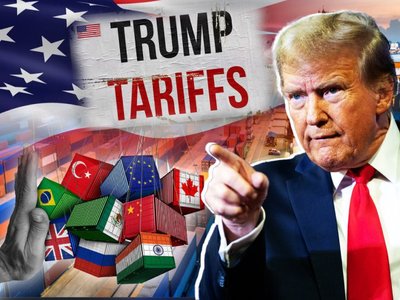Emerging Terror Threats from Africa: Europe on High Alert amid IS Resurgence
As ISIS reestablishes its stronghold in Somalia, Europe grapples with balancing security and civil liberties.
A specter of renewed terrorism looms over Europe, as the Islamic State (IS) reportedly regroups, finding fertile ground in Africa amidst Somalia’s instability.
This development revives deep concerns about potential attacks that could once again shake the foundations of European security.
The question that urgently surfaces is how the continent should navigate this intricately tangled web of fear, security, and civil liberties.
The allure for IS in Somalia is clear.
The nation, long beleaguered by internal strife and political fragmentation, offers a strategic haven for extremist organizations.
This resurgence marks a critical chapter in IS's adaptive narrative; despite military defeats in the Middle East, their ideology finds new soils in the chaos of fragile states.
Yet for Europe, the pressing challenge is to discern between legitimate threats and politico-strategic hyperbole.
While history cautions against underestimating such threats—the grim memories of prior attacks remain fresh—there is also the risk of yielding to exaggerated tales that justify increased surveillance and burgeoning defense budgets.
A collective hemming and hawing is underway among European policymakers.
There is an urge to react decisively, to prevent these threats before they crystallize into tragedies.
However, there is a growing school that posits a more measured response, one that aims for dialogue and attention to the systemic roots of extremism rather than heavy-handed militarization.
Engendering dialogue is no less formidable a task.
Western nations must explore ways to stabilize regions like Somalia, potentially through economic aid that targets the root economic and social issues nurturing extremism.
This approach vies for control in a clash that is as much about ideology and opportunity as it is about military prowess.
However, any such endeavor by Western nations teeters precariously on the fulcrum of trust.
Can these ‚powers demonstrate genuine commitment to peace without ulterior motives playing a subtextual role?
A segment anticipates a policy shift towards transparency and consistency, heeding Franklin D.
Roosevelt’s enduring counsel that 'fear must not drive our policy making'.
In this complicated theatre of modern geopolitics, Europe faces a profound challenge.
How its leaders respond to IS's resurgence in Somalia could set a precedent for dealing with insurgent threats emanating from unstable regions.
What remains is a collective hope that policy crafted in the coming days will prioritize peace and stability over expedient fear-mongering—a balance critical to preserving both security and the values upon which free societies stand.
This development revives deep concerns about potential attacks that could once again shake the foundations of European security.
The question that urgently surfaces is how the continent should navigate this intricately tangled web of fear, security, and civil liberties.
The allure for IS in Somalia is clear.
The nation, long beleaguered by internal strife and political fragmentation, offers a strategic haven for extremist organizations.
This resurgence marks a critical chapter in IS's adaptive narrative; despite military defeats in the Middle East, their ideology finds new soils in the chaos of fragile states.
Yet for Europe, the pressing challenge is to discern between legitimate threats and politico-strategic hyperbole.
While history cautions against underestimating such threats—the grim memories of prior attacks remain fresh—there is also the risk of yielding to exaggerated tales that justify increased surveillance and burgeoning defense budgets.
A collective hemming and hawing is underway among European policymakers.
There is an urge to react decisively, to prevent these threats before they crystallize into tragedies.
However, there is a growing school that posits a more measured response, one that aims for dialogue and attention to the systemic roots of extremism rather than heavy-handed militarization.
Engendering dialogue is no less formidable a task.
Western nations must explore ways to stabilize regions like Somalia, potentially through economic aid that targets the root economic and social issues nurturing extremism.
This approach vies for control in a clash that is as much about ideology and opportunity as it is about military prowess.
However, any such endeavor by Western nations teeters precariously on the fulcrum of trust.
Can these ‚powers demonstrate genuine commitment to peace without ulterior motives playing a subtextual role?
A segment anticipates a policy shift towards transparency and consistency, heeding Franklin D.
Roosevelt’s enduring counsel that 'fear must not drive our policy making'.
In this complicated theatre of modern geopolitics, Europe faces a profound challenge.
How its leaders respond to IS's resurgence in Somalia could set a precedent for dealing with insurgent threats emanating from unstable regions.
What remains is a collective hope that policy crafted in the coming days will prioritize peace and stability over expedient fear-mongering—a balance critical to preserving both security and the values upon which free societies stand.
